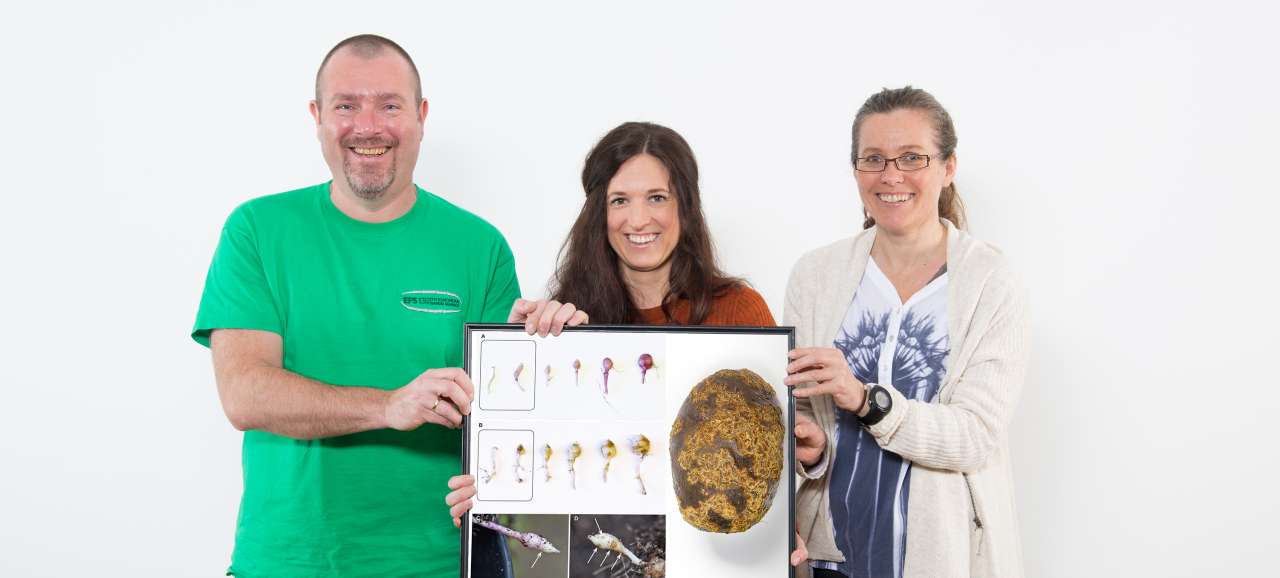Potato defence against common scab

Photo: Erling Fløistad
Potato is the second most important cultivated plant in Norway and the fourth most important in the world. Increased sales of washed potato products have contributed to the increased economic importance of scab diseases. Common scab is a quality disease on potato caused by a few Streptomyces species, a genus of bacteria that live in the soil. The disease produces quality loss and reduced market value.
For food potato, scab diseases are among the most important quality faults and make up a total of 40% of the overall quality loss. There are no good chemical methods for combating common scab, and no known potato varieties have complete resistance. The fact that some varieties are relatively robust against common scab suggests that the disease can be fought through targeted breeding.
It is currently unknown what causes some potato varieties to be more tolerant for common scab than others. NIBIO has studied the potato plant's defence against this bacterial disease.
The researchers have studied a resistant variety, Beate, and a susceptible one, Saturna, to find genes that play a role in the plant's defence against the disease.
The results from this study show that the resistant potato cultivar maintains the defensive response against the bacterium through the early stages of tuber development, while the response became weaker with the susceptible cultivar. Candidate genes that most likely are involved in defence in the resistant cultivar have been identified. The results have contributed to increased understanding of the potato plant's complex defence against common scab. This knowledge will be useful in breeding programmes for potato.
Contacts

Contacts

Publications
Abstract
No abstract has been registered
